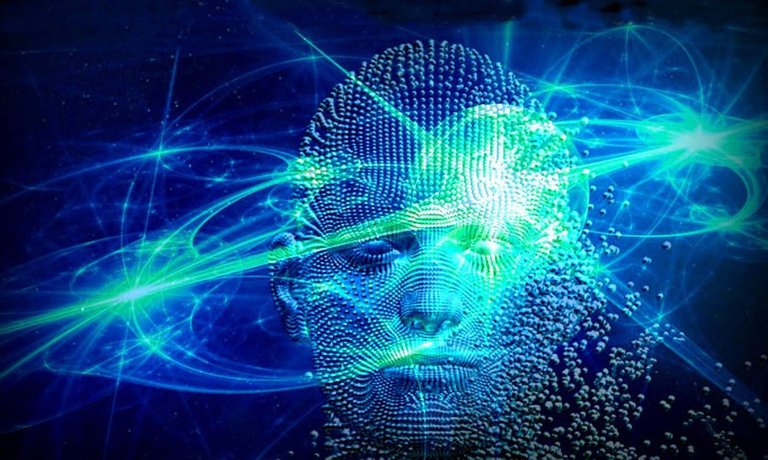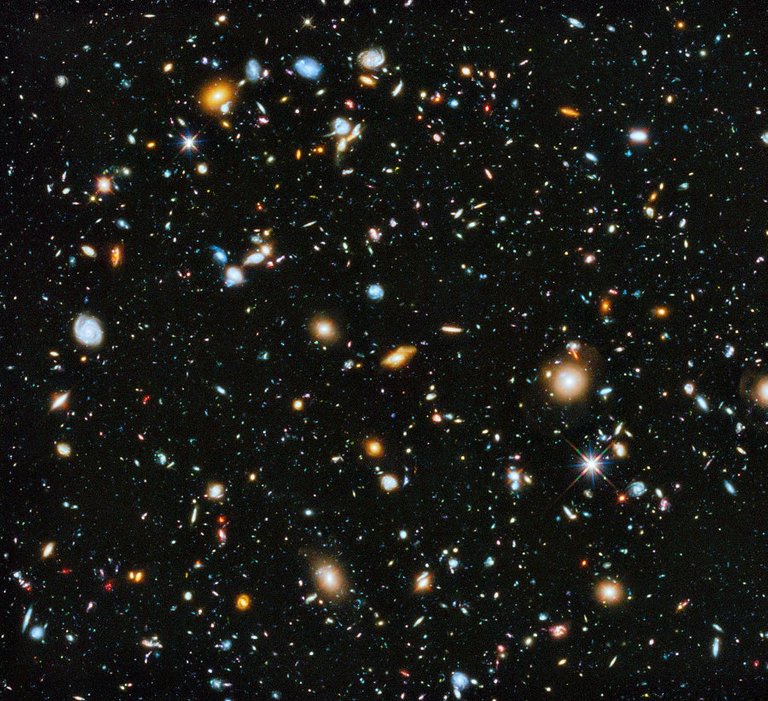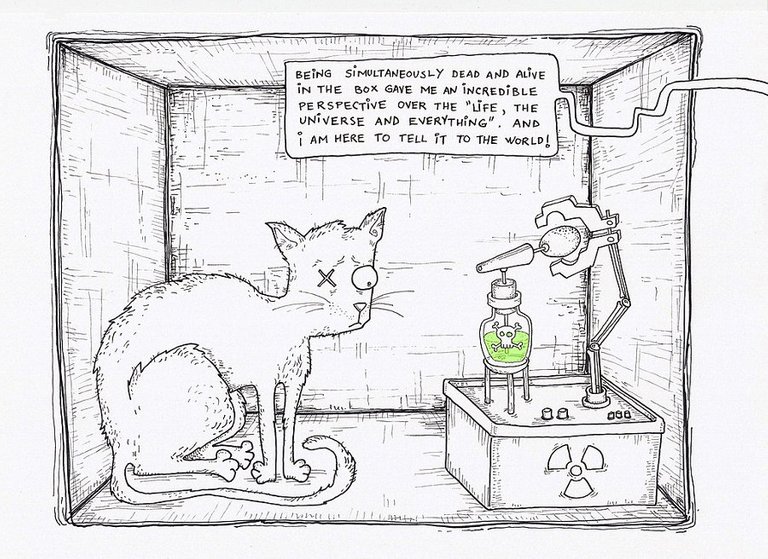Quantum Consciousness? (repost)
Life, consciousness, the universe and everything. What and why are they? And what came first, life or consciousness? Or is consciousness an integral part of the universe, one with everything?

Image by azmat ullah - source: Pexels
The quantum mind or quantum consciousness group of hypotheses propose that classical mechanics cannot explain consciousness. It posits that quantum mechanical phenomena, such as quantum entanglement and superposition, may play an important part in the brain's function and could contribute to form the basis of an explanation of consciousness.
source: Wikipedia
Today I'll start with a disclaimer: what follows is still mere speculation from the very forefront of theoretical physics, cosmology and quantum field theory and isn't universally accepted among the scientist community. It is based on the work of Sir Roger Penrose in collaboration with Stuart Hameroff.
Our world, the universe as far as we're able to make scientific sense of it all, is divided in two realms. On one hand we have the "classical" understanding of the world, or the classical world, in which everything is localized in space-time and acts according to the laws discovered by Newton and Einstein (among many others of course). It's the deterministic world of causes and effects, where everything acts as physical particles and is relatively large.

Hubble Ultra Deep Field - source: Wikipedia
On the other hand there's the highly successful science of quantum mechanics that rules the domains on the very small scales. In this realm every elementary particle exists in a state of so called quantum superposition:
The principle of quantum superposition states that if a physical system may be in one of many configurations—arrangements of particles or fields—then the most general state is a combination of all of these possibilities, where the amount in each configuration is specified by a complex number. [...] The non-classical nature of the superposition process is brought out clearly if we consider the superposition of two states, A and B, such that there exists an observation which, when made on the system in state A, is certain to lead to one particular result, a say, and when made on the system in state B is certain to lead to some different result, b say. What will be the result of the observation when made on the system in the superposed state? The answer is that the result will be sometimes a and sometimes b, according to a probability law depending on the relative weights of A and B in the superposition process.
source: Wikipedia
The best scientific description of reality on the very small scales we have, quantum mechanics, says that particles are in multiple locations at the same time and that they only get a fixed position after it has been observed or measured. This is referred to as the measurement problem as beautifully described in the thought experiment known as Schrödinger's cat. The mathematical equation that represent particles in their natural state of superposition is called the wave function, and the measurement problem is trying to discover how and when the wave function collapse occurs.
In quantum mechanics, wave function collapse is said to occur when a wave function—initially in a superposition of several eigenstates—appears to reduce to a single eigenstate (by "observation").
source: Wikipedia

Schrödinger's cat in the box, having its near-death experience.
source: Wikimedia Commons
There are a few competing answers to the question why we don't see the reality of superpositions, but only the collapsed state of localized positions. I'll mention the two most popular. By far the most popular hypothesis is that of the many-worlds interpretation in which each possible outcome of the wave function collapse causes the universe to "branch off" into a whole separate universe of its own. It's the stuff of many SF stories in which there's a universe somewhere in another dimension; the Marvel Universe, for example ;-)
Then there's the observer effect, where some conscious observer causes the wave function to collapse. The problem with this explanation is that it says nothing about who, where or what is conscious or consciousness. It leads to question whether this conscious observer is some kind of God or us or the universe itself. We're already into the realm of hypothesis and speculation, so now I'll reveal the remarkable link between consciousness and quantum mechanics made by Sir Roger Penrose.
The remarkable and, from my amateur viewpoint of very limited knowledge, very elegant hypothesis proposed by Sir Roger Penrose is to simply reverse cause and affect in the collapsing of the wave function. He asks: what if consciousness arises because the wave funcion collapses? He reasons that the state of superposition is unstable and that it "wants" to collapse, and that this could mean that the collapsing of wave functions is consciousness. He asserts: 'self-collapse' causes consciousness.
He proposes that the superpositions are unstable and will self-collapse and will undergo 'objective reduction' (into a stable state of localized position), and that this self-collapse is accompanied by a moment of conscious awareness. Conscious awareness occurs at moments of self-collapse. Thus the universe becomes a sea of what Stuart Hameroff calls 'proto-consciousness'. Watch this two minute video with his explanation and how science and Buddhism seem to grow nearer:
The ocean of consciousness, or proto-consciousness, Stuart Hameroff
Penrose and Hameroff went further and hypothesized that some of these collapses may be 'pleasant' or favorable to this 'proto-consciousness', and even went on to link the emergence of life with this cosmic consciousness, firmly placing the origin of consciousness before the origin of life on the universal timeline. The exact manner in which these gentlemen describe how proto-consciousness causes life to emerge I'll leave for you to see in the video at the end of this article, but I do want to address one more thing about this theory of consciousness by self-collapse.
The Future of Consciousness: Stuart Hameroff at TEDxTucson
"Following a longstanding interest in the computational capacity of microtubules inside neurons, Hameroff teamed with the eminent British physicist Sir Roger Penrose to develop a controversial quantum theory of consciousness called orchestrated objective reduction (Orch OR) which connects brain processes to fundamental spacetime geometry."
The classical hypothesis about consciousness is that it is an emergent phenomenon of complex processes caused by millions of electro-chemical reactions and signals in our brains. In this model however consciousness is alway last to arrive at the party, making it impossible for us to have free will. In the classical world of particles acting in four-dimensional space-time we can measure that we consciously become aware of our choices miliseconds after the brain already made the decision, causing neuropsychology to say we merely have the 'illusion of free will'. Penrose and Hameroff do away with the delay that caused the death of free will! :-)
This is really complicated material and I can't presume to understand it all, nor do I assume this to be true or false. Like I said at the beginning: this is truly speculation from the forefront of modern science and this self-collapse theory still has a minority of scientists convinced, or even interested. But I know a lot of you, dear readers and fellow steemians, are a lot smarter than I am, so I felt compelled to share this with you all. And of cause, I'm super interested in your thoughts about the possibility that science might actually look into the existence of some sort of cosmic consciousness. Here's the full lecture of Stuart Hameroff at the Moscow Center for Consciousness Studies that first got me interested in all of this:
Is Quantum Physics Necessary for the Account of Consciousness? The Lecture of Stuart Hameroff
This theory has far fetching implications, and if it is not proven to be pseudo-science in the future, it could legitimize a lot of what's called pseudo-science today, such as studies into outer body experiences, past-life experiences and so on. I find this really exciting. If you made it this far, dear reader, than you have my respect and gratitude :-)
Thanks so much for visiting my blog and reading my posts dear reader, I appreciate that a lot :-) If you like my content, please consider leaving a comment, upvote or resteem. I'll be back here tomorrow and sincerely hope you'll join me. Until then, stay safe, stay healthy!

Recent articles you might be interested in:
| Latest article >>>>>>>>>>> | Play To Earn Nightmare |
|---|---|
| Musk PR | Earth 3.0? |
| Fading Moral Skills | Privatized Space Exploration |
| 2022 Year Of Cardano? | I Think... |

Thanks for stopping by and reading. If you really liked this content, if you disagree (or if you do agree), please leave a comment. Of course, upvotes, follows, resteems are all greatly appreciated, but nothing brings me and you more growth than sharing our ideas.
Dear my friend @zyx066, I read an evolutionary theory that the first life on Earth came from extraterrestrial microbes attached to meteorites that crashed on Earth.
Seeing the fact that my dear friend @zyx066 has more genius intelligence and more persuasive power than ordinary Earthlings, I had a quirky imagination that life on Earth could be descended from extraterrestrial life.😄